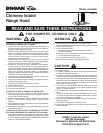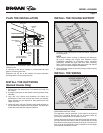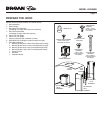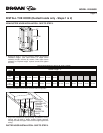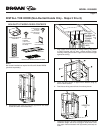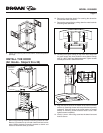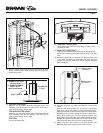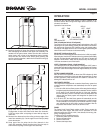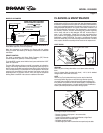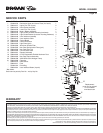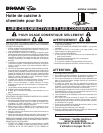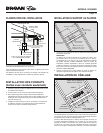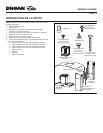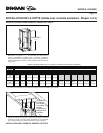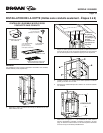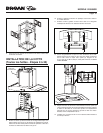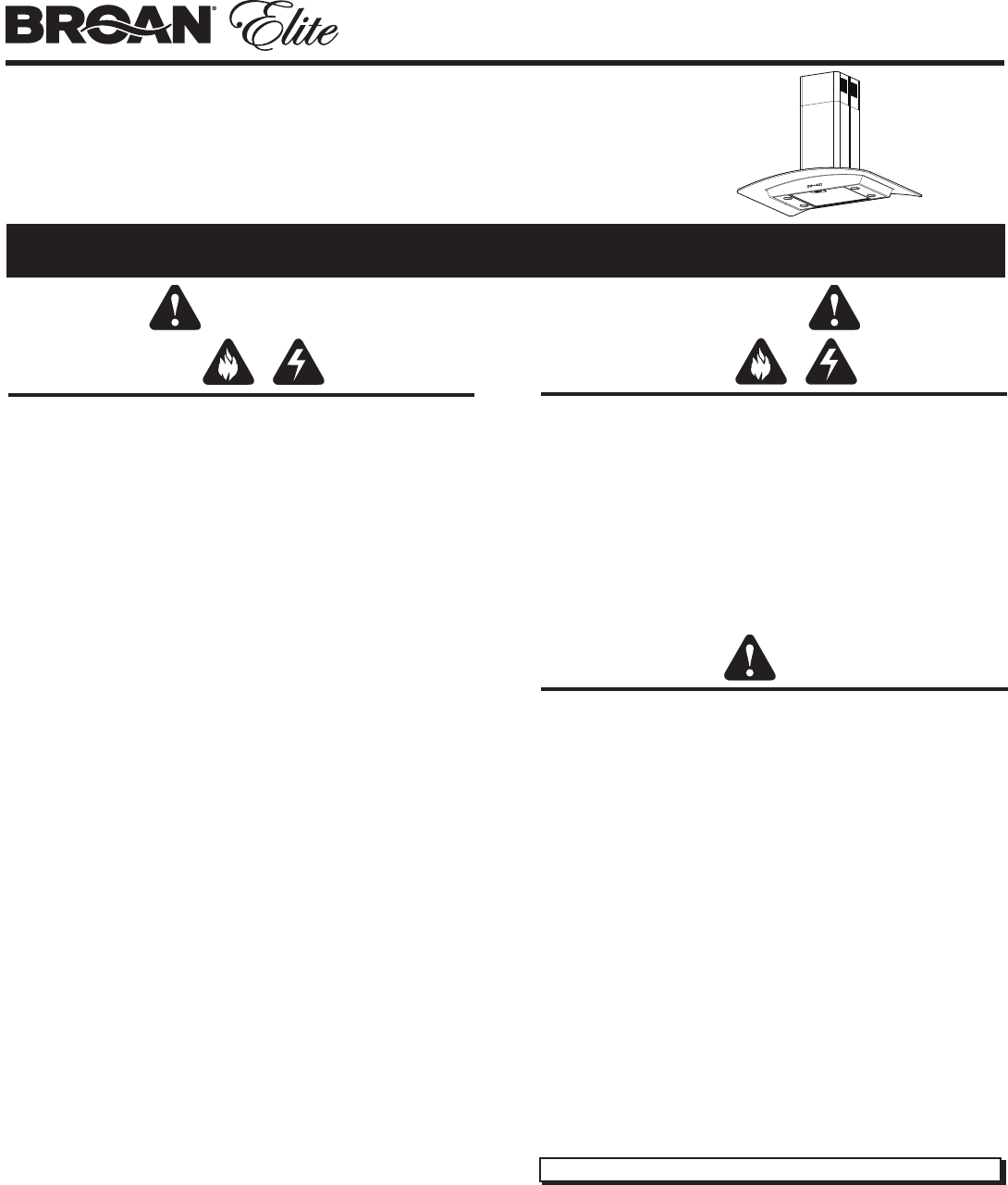
MODEL EI5936SS
Page 1
Chimney Island
Range Hood
READ AND SAVE THESE INSTRUCTIONS
TO REDUCE THE RISK OF FIRE, ELECTRIC SHOCK, OR INJURY
TO PERSON(S) OBSERVE THE FOLLOWING:
1. Use this unit only in the manner intended by the manufacturer. If
you have questions, contact the manufacturer at the address or
telephone number listed in the warranty.
2. Before servicing or cleaning unit, switch power off at service panel
and lock service disconnecting means to prevent power from being
switch on accidentally. When the service disconnecting means
cannot be locked, securely fasten a prominent warning device,
such as a tag, to the service panel.
3. Installation work and electrical wiring must be done by qualified
personnel in accordance with all applicable codes and standards,
including fire-rated construction codes and standards.
4. Sufficient air is needed for proper combustion and exhausting
of gases through the flue (chimney) of fuel burning equipment to
prevent back drafting. Follow the heating equipment manufacturer’s
guideline and safety standards such as those published by the
National Fire Protection Association (NFPA), and the American
Society for Heating, Refrigeration and Air Conditioning Engineers
(ASHRAE), and the local code authorities.
5. This product may have sharp edges. Be careful to avoid cuts and
abrasions during installation and cleaning.
6. When cutting or drilling into wall or ceiling, do not damage electrical
wiring and other hidden utilities.
7. Ducted fans must
a
lways be vented to the outdoors.
8. Use only metal ductwork.
9. Do not use this unit with any other solid-state speed control device.
10. This unit must be grounded.
TO REDUCE THE RISK OF A RANGE TOP GREASE FIRE:
a) Never leave surface units unattended at high settings. Boilovers
cause smoking and greasy spillovers that may ignite. Heat oils
slowly on low or medium settings.
b) Always turn hood ON when cooking at high heat or when flambéing
food (i.e. Crêpes Suzette, Cherries Jubilee, Peppercorn Beef
Flambé).
c) Clean ventilating fans frequently. Grease should not be allowed to
accumulate on fan or filters.
d) Use proper pan size. Always use cookware appropriate for the size
of the surface element.
TO REDUCE THE RISK OF INJURY TO PERSON(S) IN THE EVENT
OF A RANGE TOP GREASE FIRE, OBSERVE THE FOLLOWING*:
1. SMOTHER FLAMES with a close-fitting lid, cookie sheet, or metal
tray, then turn off the burner. BE CAREFUL TO PREVENT BURNS.
IF THE FLAMES DO NOT GO OUT IMMEDIATELY, EVACUATE
AND CALL THE FIRE DEPARTMENT.
1. For indoor use only.
2. For general ventilating use only. Do not use to exhaust hazardous
or explosive materials and vapors.
3. To avoid motor bearing damage and noisy and/or unbalanced
impeller, keep drywall spray, construction dust, etc. off power unit.
4. Your hood motor has a thermal overload which will automatically
shut off the motor if it becomes overheated. The
mot
or will restart
when it will cool down. If the motor continues to shut off and
restart, have the hood serviced.
5. The bottom of the hood MUST NOT BE LESS than 24” and
recommended at a maximum of 36” above cooktop for best
capture of cooking impurities.
6. Two installers are recommended because of the size of this
hood.
7. To reduce risk of fire and to properly exhaust air, be sure to duct
air outside. Do not exhaust air into spaces within walls or ceilings
or into attics, crawl spaces, or garages.
8. Be careful when installing the decorative flue and hood, they may
have sharp edges.
9. This hood is not intended to be used as a shelf.
10. Please read specification label on product for further information
and requirements.
Installer: Leave this manual
with the homeowner.
Homeowner: Operation and Maintenance
instructions on pages 8 & 9.
WARNING
CAUTION
FOR DOMESTIC COOKING ONLY
WARNING
Register your product online at: www.broan.com
2. NEVER PICK UP A FLAMING PAN – You may be burned.
3. DO NOT USE WATER, including wet dishcloths or towels – a violent
steam explosion will result.
4. Use an extinguisher ONLY if:
A. You know you have a Class ABC extinguisher, and you
know how to operate it.
B. The fire is small and contained in the area where it started.
C. The fire department is being called.
D. You can fight the fire with your back to an exit.
* Based on “Kitchen Fire Safety Tips” published by NFPA



